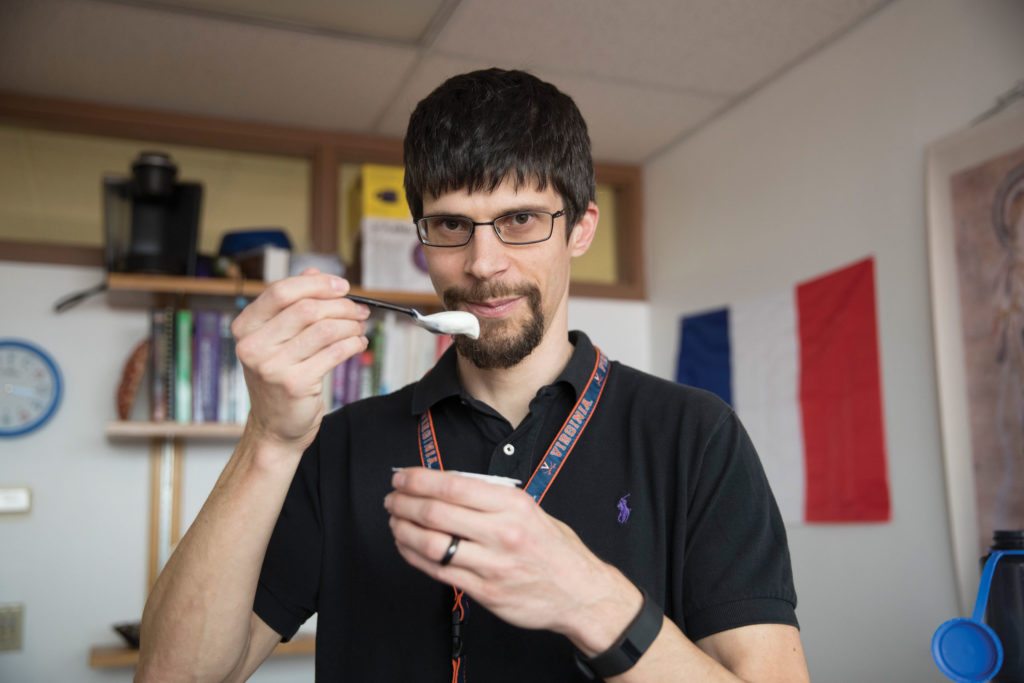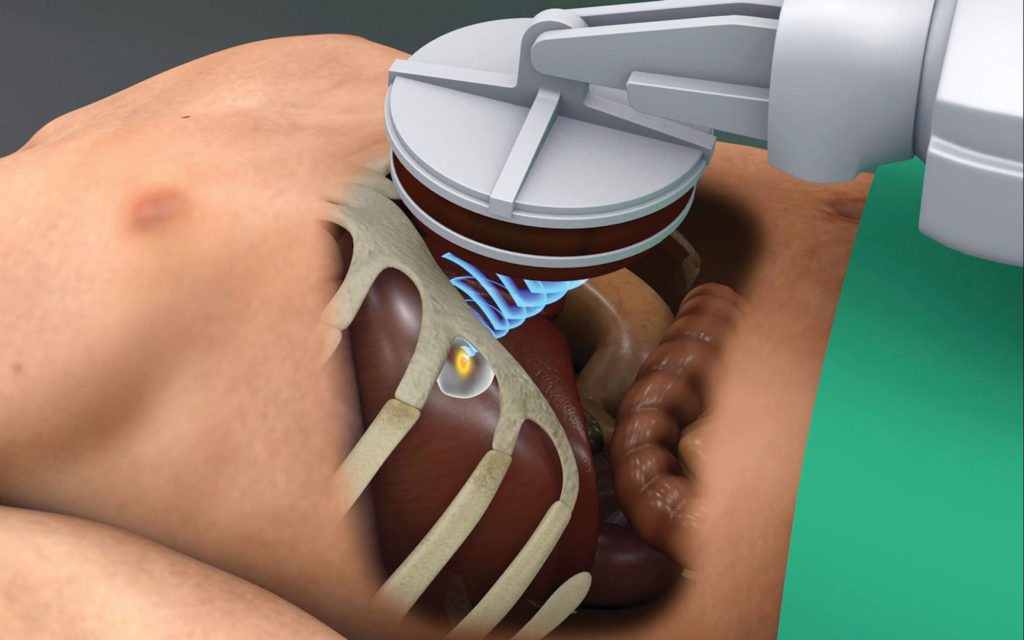Discoveries/Innovations: Stretchy Electronic Skin May Improve Brain Monitoring

You may not realize it, but your brain is moving. The brain changes volume throughout the day as it swells and de-swells. While this may be inconsequential to you, it does matter to neuroscientists. Currently, they must rely on electrodes—to monitor brain activity or deliver pulses of electricity for pain relief—that aren’t able to adapt to the brain’s movements. This makes it difficult to maintain a good connection.
Lucky for them, Zhenan Bao, a Professor of Chemical Engineering at Stanford, has been working with a team of researchers to change that. Recently, they made a breakthrough that has allowed them to create a soft, flexible electrode that is compatible with supple and sensitive nerves.
“This flexible electrode opens up many new, exciting possibilities down the road for brain interfaces and other implantable electronics,” Bao said in a statement. “Here, we have a new material with uncompromised electrical performance and high stretchability.”
Working with scientists at the SLAC National Accelerator Laboratory, they used X-ray to study plastics at the molecular level until they were able to discover the right molecular additive that would allow them to make a material that was both conductive and flexible. While the result is still only a laboratory prototype, they believe this material will form a better interface with the brain and they plan to further develop it as they continue to work on creating flexible materials that interface with the human body.
Therapeutic Talk: Can Yogurt Lead to a New Treatment for Depression?

Does eating yogurt make you happy? It just might, as researchers at the University of Virginia School of Medicine discovered that by feeding mice Lactobacillus, a probiotic bacteria found in live-cultures yogurt, they were able to reverse symptoms of depression. Furthermore, they identified a specific mechanism for how the bacteria affects mood, which they believe provides a direct link between the health of the gut microbiome and mental health.
“The big hope for this kind of research is that we won’t need to bother with complex drugs and side effects when we can just play with the microbiome,” lead researcher Alban Gaultier, PhD explained in a statement. “It would be magical just to change your diet, to change the bacteria you take, and fix your health—and your mood.”
Considering mice have no way to actually express their feelings, Gaultier clarifies that Lactobacillus only helped to reduce “depressive-like behavior” or “despair behavior,” but he is optimistic that the findings will hold true for people. The study revealed that the amount of Lactobacillus in the gut affects the level of kynurenine in the blood, which has been linked to depression. His next step is to examine the effects of Lactobacillus on depression in patients with multiple sclerosis as soon as possible.
Medical Devices: Focused Ultrasound Can Destroy Live Tumors

Scientists working on a project in the EU called TRANS-FUSIMO (“Clinical Translation of Patient-Specific Planning and Conducting of FUS Treatment in Moving Organs”) coordinated by the Fraunhofer Institute for Medical Image Computing MEVIS in Bremen, are hoping to refocus the ultrasound beam to destroy tumors on moving organs without harming the surrounding healthy tissue. While similar methods have been used as a treatment for prostate cancer, bone metastases, and uterine myoma, the process is more difficult for organs, like the liver, that move when the patient breathes.
“Generating an image of the liver’s position every tenth of a second is not fast enough to reliably direct the ultrasound beam,” Project manager Sabrina Haase, mathematician at Fraunhofer MEVIS, explained in a statement. “This is why we developed software that can see into the immediate future and calculate the next position of the treated region.”
The process involves a patient lying in a MRI scanner during the procedure in order to see the current position of the liver. Meanwhile, an ultrasound transducer is placed on the patient’s stomach that is capable of focusing its waves and unleashing a destructive attack on the tumor cells. Haase adds that tests on actual patients won’t occur until mid-2018.
Doctor Docs: Don’t Underestimate Trust as a Treatment
Healthcare professionals are taught the value of earning a patient’s trust. It’s part of what makes for good bedside manner. But researchers from the Department of Psychology at the University of Basel and Harvard Medical School wondered whether a patient’s trust in their doctor actually produces any clinical effects.
The researchers conducted a meta-analysis of 47 studies from Europe, Asia, North America, and Australia which examined the relationship between trust and an improved state of health in patients. And while the results, published in the journal PLOS ONE, revealed that trust had no proven clinical effect, it did have a positive effect on the satisfaction, health-related behavior, quality of life, and subjectively perceived complaints of those being treated. All of which confirms that trust does play an important part in the care of patients.
FDA Update
New Commissioner
President Trump has tapped Dr. Scott Gottlieb, a resident fellow at the American Enterprise Institute and former FDA official, as his choice to lead the Agency as its new commissioner. Dr. Gottlieb also has several ties to the pharma industry receiving consulting fees from companies such as Vertex Pharmaceuticals, GlaxoSmithKline, Valeant Pharmaceuticals, and Bristol-Myers Squibb. Before being appointed to the position, Dr. Gottlieb faces a Senate hearing and vote.
New Office of Patient Affairs
The FDA is considering establishing an Office of Patient Affairs, which would be tasked with supporting and coordinating patient engagement. The goal of the office would be to create a single, central entry point to the Agency for the patient community.
Drug Approvals
Keytruda (pembrolizumab) from Merck was approved for the treatment of adult and pediatric patients with refractory classical Hodgkin lymphoma (cHL), or who have relapsed after three or more prior lines of therapy.
Serenity Pharmaceuticals’ Noctiva (desmopressin acetate) nasal spray is the first product approved for nocturnal polyuria (overproduction of urine during the night) in adults who awaken at least two times per night to urinate.
Shortly after receiving approval for Kisqali (ribociclib) as a first-line treatment for HR-positive, HER2-negative breast cancer, Novartis unveiled a flexible pricing structure. A 28-day supply of the drug will cost $10,950 for the 600-mg dose, $8,760 for the 400-mg dose, and $4,380 for the 200-mg dose.
Lexicon Pharmaceuticals’ Xermelo (telotristat ethyl) tablets in combination with somatostatin analog (SSA) therapy was approved for the treatment of adults with carcinoid syndrome diarrhea that SSA therapy alone has inadequately controlled.





